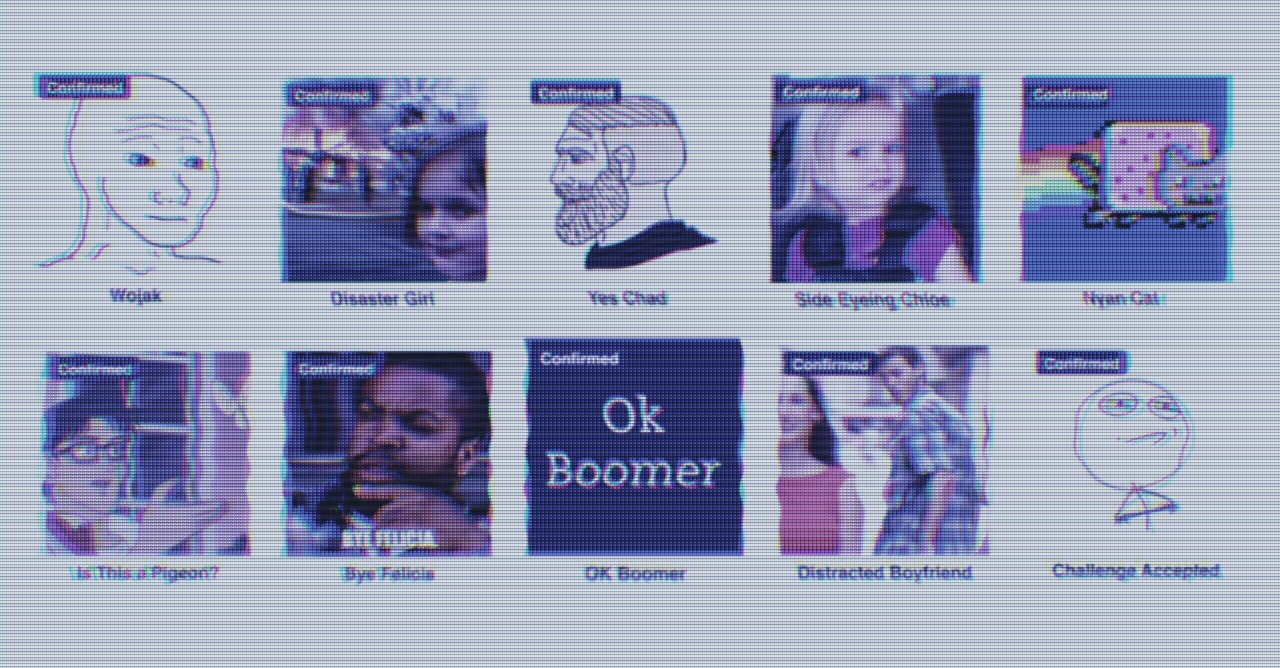
The Internet Encyclopedia of Memes
An Interview with Don Caldwell, the Editor-in-Chief of Know Your Meme
Think of any meme. It could be the scribbled image of party goers and one man—off alone to the side, donning a party hat and holding a cup—with a caption that reads “They don’t know...” Maybe it’s the surprised Pikachu, accompanying a description of an entirely predictable outcome that nevertheless leaves someone stunned. It could be the unsettling videos slicing into bags, plants, and animals that, inevitably, turn out to be cake.
If you’re seeing a meme again and again, populating your Twitter feed or recurring on your TikTok For You page, more likely than not, it’s been meticulously documented on Know Your Meme, an online encyclopedia cataloging internet memes. It probably has a standalone page, tracing back the origins of the meme, archiving interesting iterations and spinoffs, and cataloging its significance to the internet and the wider world.
The “They Don’t Know” meme blew up in its current form in November 2020 on Twitter but actually originated in 2009 on the internet humor website Sad and Useless. The “Surprised Pikachu” pulls its iconic image from Season 1, Episode 10, “Bulbasaur and the Hidden Village.” The Cake or Fake phenomenon was first jump started by an April Fool's Day joke by the website CakeWreck in 2011. Know Your Meme’s deep encyclopedic catalog of the memes that populate the web make it one of the most important sites on the internet.
For the past 15 years, Know Your Meme has documented internet culture from across the web—from 4chan and Reddit to Twitter and TikTok. For nearly 12 of those years—or what he describes as “an eternity in internet years”—Don Caldwell has been at the forefront at Know Your Meme, most recently as the Editor-in-Chief. He’s made nearly 100,000 contributions to the site, slowed only by moving into a managerial role at the company. He leads efforts for the site’s encyclopedia database for which they’re best known, but also their insights operation, Know Your Meme News, and Editorials section—as well as their video operations on Youtube, Snapchat, Facebook, and TikTok. His advice and expertise is often called on in the media to dissect the latest meme or internet culture craze, from memers taking over TikTok to the viral classic meme to NFT gold rush.
I got to chat with the anthropology major turned internet documentarian behind the world’s greatest meme collection. Don’s internet culture knowledge is as encyclopedic as the database he’s helped shape and his insights on the evolution of memes was a delight to dive into.
Read on for a wide-ranging conversation about Know Your Meme and the evolution of internet memes:
- What constitutes a meme and when content passes the meme threshold
- The pain-staking process of uncovering the origins of a meme
- The convergent evolution of memes like Rickroll and wordcel vs shape rotator
- Distinct meme eras from 2012 and beyond
- Hang out spots on the web and the addictive nature of social media
- How the evolution of technology happens in tandem with the evolution of memes
- Accepting that TikTok is a massive internet platform driving meme culture
- Web3 memes and what some of y'all still don’t get about using multiple slurp juices on a single ape
- The most prolific meme generation and why Facebook is more than just boomer memes
- Chief meme officers and corporations understanding internet meme culture
Also, subscribe to Cybernaut for long form essays about internet culture and more interviews with internet culture aficionados like Don. :)
The memes that make the cut on the world’s biggest internet culture encyclopedia
Fadeke: At what point does something become a full fledged meme versus an idea or a popular tweet?
Don: I don't have fully strict rules on this! I think it's kind of a spectrum and a continuum. There's not a number that you hit and then it's considered a meme. I also operate on a very broad definition of meme: any type of viral culturally transmitted information.
With Know Your Meme, it's focused on internet memes, obviously. There is kind of a threshold that we’ll prioritize in our staff editing and staff documentation. We have a limited number of things we can do per day. So we focus on the highest impact ones! When we look for things to cover and either clean up from a user submission or to document ourselves from scratch, it's definitely things that have generated a fair amount of engagement. Either remixes or, you know, meme iterations. Usually, if it’s an image related meme, we'd want to have at least 20 pretty reasonably viral iterations of it.
Fadeke: That's a pretty high bar.
Don: It's a higher bar. If you can nail down 15-20 viral TikToks based on the theme or the sound or the dance or the challenge or the general kind of joke or discussion topic, then it's worth documenting.
But we do have a Deadpool section on the site, or things that have not been done properly or are just clearly not very significant yet. As long as something has some kind of legitimate viral presence online, it's worth covering on the site. I've definitely over the years grown to make the site more encompassing of everything involved in internet culture and not be quite as strict on having, for lack of a better word, a hard ass definition of a meme.
Fadeke: Less gatekeeping.
Don: Right, less gatekeeping. I view Know Your Meme as being a historical record for viral internet culture in general. And I like it to be as thorough and comprehensive as possible.
Fadeke: Any registered member can submit a meme on the website. What does the moderation and the editorial side look like on your end?
Don: Know Your Meme is a custom Ruby on Rails app. So, it's not a wiki. It’s a little bit more strict than a wiki. I have grown to like it. The way that it’s more strict is you can submit anything, but nothing gets put on our front page until it's been fact checked and fully edited by a staff member. Things will stay in the submissions pool until they are confirmed.
Confirmation is a manual process right now, which I'm trying to get automated. But still in that process, I'm going to make sure that it requires a staff member. What I’m going to do is have a view count threshold and then once it reaches a minimum view count, it'll have certain criteria. Then also, it must have a staff edit. We have volunteer moderators as well. But we have a team of 10 people full-time editorial staff.
Fadeke: Approximately how many volunteer moderators do you have?
Don: We have a bunch. Not all of them are super active. They can come and go as they please. 32 all together. I'd ballpark 15 on the active-ish side.
Fadeke: How many submissions might you get per day?
Don: It fluctuates. During the weekdays, it's more because the staff submits the vast majority of entries these days. Users still submit them and there's some good quality entries. But our staff are doing it all day, Monday through Friday, it's their job. So of course, they'll do a lot more. During the weekdays, it'll be anywhere from 10 to 20. And then on the weekends, it's a lot less.
The painstaking process of pinpointing the origins of a meme
Fadeke: One of the things that I'm always impressed by when I look at the site is how the origin of a meme is pinpointed. What does that fact finding process look like?
Don: It's definitely our bread and butter! It's something we take really seriously, we’re super nerdy about it. We have all kinds of internal documentation for onboarding new people. There’s topics like “Here’s how you find the origins of this site, and this site, and this site..” or “Here's how you find the timestamp without the timestamp publicly exposed, you need to go to the View Source..” or “On TikTok, you have to go to ‘create time’, then you get EPOCH code and then go into the unit EPOCH code converter to get timestamp…”. All this kind of stuff.
Long story short. It varies per site. Some sites are harder than others. Some places are notoriously difficult. Like Facebook doesn't play nice with Google search. So we use things like CrowdTangle for places like Facebook to do research on there and track down origins. Reverse image search on Google is a godsend. It's a very, very important tool for us for tracking down image origins. We've used older image search technologies like TinEye.
Like I mentioned, Crowdtangle is a very important source for things like Instagram and Facebook. CrowdTangle is owned by Meta, so plays nice with their platforms. Google and Meta don't get along when it comes to searching. It can be hard to research meme origins using Google Search for memes that were born on Instagram and Facebook.
Fadeke: How about on 4chan?
Don: 4chan can be really hard. Some people aren't aware, but 4chan used to be the center of meme culture, especially when I first started with Know Your Meme twelve years ago. 4chan was just so so important. Reddit was becoming more and more important at that time. 4chan is still super important. It's where a lot of huge memes were born. Memes that have just had such lasting power, like Wojack. Wojack was actually born on another image board but was popularized and became the meme that it is from 4chan.
4chan can be really hard because it's so ephemeral, though we do have 4chan archive sites now which help with that research process. But with 4chan, when a post hits the fifteenth page, it’s removed from the board and so you have to rely on archive places.
Reddit is one of the easier places to research memes on just because it's archived by default there. It does play nice with Google search a lot of the time. You know, Reddit and Google get along very well. Reddit has its own search that’s decent.
Twitter is also wildly important in internet culture and memes. Twitter does have really nice advanced search functionality and even a really nice API to plug in custom tools. We have our own custom tools for Know Your Meme, including a custom trend spotting tool that we use to monitor all kinds of different platforms.
Fadeke: Do you have developers on staff or is that something that was built as a one-off?
Don: We have a custom trendspotting dashboard, for example. That's an internal tool. That was built by a third-party outsourced development team that we still work with. We do have an in-house developer though. In the past we had a developer that was pretty central for building out some of our early trend spotting tools. Jamie Dubbs, who is a co-founder of Know Your Meme, coded the original version of the site. He's been instrumental. Technology and Know Your Meme go hand-in-hand and software development is very important for what we do.
Fadeke: I didn't know that the process is so exhaustive. So it's really cool to hear how the origins of these memes are pinpointed.
Don: It’s really important! Also, it’s not always us. Sometimes we get help from the community, too. I mean, I'm going to toot my staff’s horn, they’re amazing and we've perfected methodologies for this whole thing. But the Know Your Meme community is also amazing. They’ve done a lot for helping document and track down origins for memes across these years.
The convergent evolution of internet memes
Fadeke: One of the memes that I was following, a few months back, was the shape rotator versus wordcel one that really blew up. There’s a page on Know Your Meme that pinpointed it back to 4chan. But many believe roon originated and popularized the term and he’s mentioned that he didn't see it on 4chan. How often does a meme have multiple, disconnected starting points?
Don: There's a couple. I'll give you the most high profile version of this.
The Rickroll is one that comes to mind. Rickroll has its origins on 4chan. It was this offshoot of the duckroll, which was this picture of a duck with wheels on it that people would use. The rickroll is a bait and switch, one of the most iconic bait and switch memes. Actually, I'll be on record, rickroll is the most iconic bait and switch meme in internet history! Like not even a contest. Duck roll was another bait and switch they had before, a stupid image of a duck with wheels on it. Then Rickroll came after that, and it’s called Rickroll because it was named after the duckroll.
But there’s this guy, a YouTuber named Hot Dad, Eric Hellwig is his real name. He has evidence of this Rickroll he did. Now, he didn't refer to it as a Rickroll, because the name Rickroll is certainly a 4chan invention. But the practice of bait and switching with Rick Astley's Never Gonna Give You Up song may have been done prior by this guy Eric Hellwig, when he prank called a Michigan Radio Station and played the song as the prank.
It's interesting because Eric himself is a meme guy and a YouTuber, he does meme parody songs and stuff. He did a Know Your Meme song. He's a great guy. I still don't know 100% that he's not memeing. He does have a recording of it, but I don’t know 100% if that recording is authentic. But we do have it in there as his claim. We don't have it in there as 100% fact. That comes to mind.
It's interesting that the practice of pranking with a bait and switch prank with “Never Gonna Give You Up” evolved independently two different times. It matches this natural phenomenon in biology called convergent evolution. It’s where the same kind of phenotypic traits will evolve independently by completely unrelated organisms. Green tree snakes look almost identical and have the same exact look, all around the world, across completely unrelated species. These kinds of traits just fit the environment. It happens naturally. So I mean, there's no reason why it shouldn't happen with memes as well, right?
So it is possible that that wordcel meme could have been! I mean, it's not a huge stretch.
Distinct meme eras from 2012 to 2022 and beyond
Fadeke: During your time studying memes over the last twelve years, have you noticed distinct meme eras or patterns emerge with new social networks?
Don: Meme evolution and the evolution of technology has gone hand in hand.
For 2012 I think of Advice Animals, Reddit, and Rage Comics—it was that period. It was an era of meme history and these meme genres were having an explosion of creativity and also different variations. In 2012 image hosting was becoming cheap. The website Imgur was big, where you could just upload and host images for free, then repost them on Reddit. There was this explosion of Advice Animals, low-barrier to entry image-based memes that you could just host cheaply on Imgur.
In the 2016 era, I'm thinking of YouTube. Before that, there was a website called YTMND. That was the site that you would have like a gif paired with an audio file. Because we didn't have cheap video hosting and YouTube around yet. So, that's what people did to have an animated meme with a sound attached to it. Then YouTube came around. And YTMND kind of became less culturally relevant, because people had YouTube to do similar stuff with.
Then we also have that era of viral video explosions from 2006 to 2010. 2010 was like a heyday of viral videos on YouTube. You know, like Antoine Dodson.
Fadeke: Yes! Someone I know dressed up as him for Halloween that year.
Don: We interviewed him recently, he’s a gem. I met him in person, actually in 2012? Yeah, I met him in 2012 at a conference called ROFLCon. It was an internet culture conference. It was amazing, it was so much fun.
But there's these eras. As new technologies come out, these memes that come along with it follow because you have these communities being formed around them. Smartphones came out and got wide adoption, and then social media got big, and then Twitter and then you know, Facebook and everything. And Facebook communities came out, meme culture and Facebook converge, and then you have Boomer memes on Facebook.
Boomers were getting into memes and cringe and all that kind of stuff. And then Vine! Vine was huge in internet culture before its time in many ways, as we've seen with TikTok completely taking over and taking over the attention economy, too.
Hang out spots on the web and the addictive nature of social media
Fadeke: I was looking at your profile on Know Your Meme. You have over 100,000 contributions! So first, I'm wondering how you're so prolific there. But, I'm also curious about where you hang out on the internet and where you uncover memes?
Don: I do less editing these days as I'm more in a managerial role. But for a long time, there were many many years of just writing entries, uploading images, researching origins, meme documentation, and editing our encyclopedia. I spent many many years doing that which, I guess, racks up those points on the contributions part of the profile.
For my favorite places to hang out online, I've always been kind of a big Redditor, although I spend less and less time on Reddit these days. I spend a lot of time on TikTok, honestly. It's a super addictive platform. It's also just super important for us and has grown in importance over the last few years. I kind of tried to fight TikTok a little bit at the beginning and gave in to the wave.
Fadeke: It’s too powerful!
Don: Too powerful! TikTok is such an important platform now in internet culture. I feel like I need to be tapped into it.
I'm hopelessly addicted to Twitter. It’s the worst one for me, honestly. I have mixed feelings about Twitter. I check Twitter during every break in a day. My initial reflex is to immediately check Twitter. I check Twitter before I do anything else after waking up.
Fadeke: Oh same. I think I might check Twitter before email.
Don: If I have a notification on my drop down for an email and it's important, I'll check that first. But if not, Twitter is the first thing I do. Honestly, I think it might be unhealthy and perverse.
Fadeke: I use an app called RescueTime that tracks my time online on websites. Twitter is one of my biggest categories. I would literally never share how much time I spend there, because it's that bad.
Don: I think it definitely has my top screen time. TikTok is up there too, sometimes. Then I have group chats that I spend a lot of time in as well, but Twitter is 90% of what we're sharing.
Fadeke: I have noticed that with my own friend group, we're sharing a lot of tweets, but a lot of the tweets are now TikToks. TikToks just go so viral on Twitter.
Don: Yeah, it's interesting. There's a lot of TikToks breaking out and making their way to Twitter, getting reposted on Reels, getting reposted as YouTube Shorts. But still, I'd say that TikTok trends and TikTok culture is unique and way more siloed than other social media platforms. There are TikTok specific trends that don't really make it out, which is interesting. I think TikTok is a unique animal in that respect. Part of it has to do with just the technology itself and the way that people interact on it.
Coming to terms with living in the TikTok era of the internet
Fadeke: Are we living in the TikTok era?
Don: So we've seen short form video become this thing. TikTok explodes. Instagram and Facebook and YouTube scramble to try to compete with short form video: YouTube Shorts, Instagram Reels. That has been an enormous force in culture.
But I also think the forces of TikTok have had an effect on meme culture and the attention economy. Everybody only has so much time per day to spend making content and consuming content. TikTok made a huge dent in that space, especially with Gen Z. Snapchat, too. The effect on meme culture has been undeniable
Fadeke: How popular are TikTok memes on Know Your Meme right now?
Don: We've seen TikTok memes take off. The number of TikTok origin memes on the site has just gone up year after and exploded.
Our users even hated it at first. But we’re documenting internet culture. So it was ‘sorry, you're not into it. We don't just cover the memes you’re into.’ But I even feel like the hatred of TikTok has started to decline. Because people just had to give into it.
Fadeke: I also feel like there's a little something for everyone on TikTok. You would be hard pressed not to find something that you enjoy on that platform.
Don: A phenomenal point, I agree completely. It's gotten so diversified on TikTok. There are shitpost memes that are…as somebody who appreciates shit posts, there are quality shit posts on TikTok. There's some good memers on TikTok, as someone who was hesitant and considers myself kind of a snob when it comes to memes.
The world of crypto and web3 memes
Fadeke: I think what you said about technology going hand in hand with memes is so true. I mean, one of my favorite memes for the past few weeks is about web3. It's the ‘ape holders can use multiple slurp juices on a single ape’ one.
Don: So fucking good! That meme is so good. I saw that tweet, and one of our staff members, Adam, found it. I said “Enter it immediately, we got to do it immediately, this is primo.”
Fadeke: I work in tech and have many friends who don't and aren’t into crypto, but they heard about that meme. It went so far outside of crypto! What do you think about the explosion of crypto and web3 memes right now and over the last few years?
Don: Yeah, it's an interesting one. Okay, so first of all, web3, crypto and NFTs in general are interesting in a number of ways. One, it’s incredibly polarizing. The fun thing about the slurp juice meme is that it was appreciated by everyone in a way. NFT and crypto haters loved it because it summed up all the absurdity of the space in one meme.
Fadeke: I love how earnest the original post was. The “a lotta yall still don’t get it.”
Don: That was the key element of it that made it so good!
Crypto and web3 culture is deeply tied to internet culture. Like on a raw, intimate level. It's born out of internet technology. The relationship between web3 and memes is a deep one. We've documented it, it’s all over the culture from ‘gm’ to the projects themselves having so many meme references. it's just deeply, deeply connected.
Some of the most successful memes in terms of views on our site and demand are ones clowning on them. There was a Bored Apes meme, like “all my apes gone.” Which is another really good meme.
Fadeke: Yes! Well, it keeps happening, with wallets being drained. A lot of the negative crypto memes remain relevant because the same kind of thing keeps happening and happening. The memes can live on in that way.
Don: Exactly! Bored Ape people seem to give out their seed phrase, like, really easily. There's been a lot of those and I don't see it going anywhere. This whole crypto crash thing has been big for memes as well. Actually, the best one I saw recently was one of those domino falling memes. The first one was ‘you can use multiple slurp juices on a single ape’ and then the falling dominoes were the ‘total collapse of crypto.’
But there is this polarizing effect where a lot of people hate crypto and web3 and they think it's being forced down their throats.
Fadeke: Well, especially with the crash. I saw people in Reese Witherspoon's mentions essentially saying “Are you happy that you told people to jump on this bandwagon?” People are really quite angry at some of the celebrities who were pushing NFTs and crypto.
Don: I think some people feel like a lot of it's a grift and people getting taken advantage of and losing their shirt. But I know plenty of people involved in web3 too, like Chris Torres, the creator of Nyan Cat. I consider him a friend of mine. He was struggling for a long time. Nyan Cat is his creation, he created that pixelart automation. And he was struggling to ever get anything from that, it's one of most iconic memes.
Fadeke: It's instantly recognizable.
Don: Exactly. The NFT space allowed him to finally get rewarded for that. And he's done very well at it. He's also just a really good guy, for free, he’s been helping all these meme stars and celebrities, mint on Foundation. And a lot of them could really use the help.
Fadeke: I think I'm optimistically skeptical. I definitely follow web3 is going great by Molly White, which is a treasure trove of some of the bad stuff happening in the space.
But I’ve also interviewed a handful of musicians, for example, who are doing music NFTs right now. Streaming is broken, they're not making any money through it, and record label deals are not great. They can be very exploitative. So it's an interesting solution for a lot of those artists.
Don: Yeah. For sure. Web3 is going great is…great! We have a Know Your Meme entry on it.
The viral memes that get the video treatment
Fadeke: Besides the website, Know Your Meme also has a YouTube channel. I'm curious about how you select what gets the video treatment?
Don: We have a video meeting every week where we kind of plan things out. One of the things that we do is interviews. For The interview series we try to nail down people who have been either the creators of memes, the stars of memes, or significant to internet culture in some way.
For example, we interviewed Anthony Fantano from theneedledrop. He’s been a big meme guy. We interviewed Justin Whang about his Tales From the Internet series. He's a big internet historian himself. We interviewed Chris, who created Nyan Cat. I love hearing from memers and meme creators and meme stars about their experiences with going viral, how it affected their life, and that kind of thing. Know Your Meme started as a video series in 2007.
Fadeke: I actually didn’t know that. When I was scrolling back on your YouTube channel, it went back 10 years, so it’s clearly been around a really long time.
Don: That's not even the original channel! When we got sold to Cheezburger in 2010—it still annoys me to this day that this was done—but they couldn't figure out how to transfer the ownership of the YouTube channel and the G Suite under Rocketboom. And so we had to get rid of it.
We had a “Weird Al” Yankovic episode on the original channel that got deleted that was super viral with millions of views. We had to reboot. But yeah, so it goes back all the way to 2007.
Rocketboom was a video-first company. So video has always been deep into Know Your Meme’s roots. That's kind of where the whole meme scientist shtick came from. Know Your Meme the website, the encyclopedias, kind of all built off that. Know Your Meme as a research institute. That kind of directed that whole course. We typically cover things on YouTube that are super trending. We can base that off our own tools that we use to see how viral things are. Or how big it is on the site, because it's getting a lot of traffic,
We also have our TikTok account, where we do more TikTok focused things, whatever we see is the biggest things going on on Tik Tok around that time. TikTok is doing great, we have like 1.2 million followers on it.
It's an extension of the encyclopedia and we kind of use it as another educational outlet. Not everybody even goes to [the encyclopedia]...a lot of Gen Z maybe doesn't even go to websites anymore.
Fadeke: I can imagine that being true.
Don: Right. We use the platform as another way for us to get the information out there. And that's how we treat the videos a lot of the time. Outside the interviews, we'll do these explainer videos where we'll repackage the research that we did into a video format.
There's clearly a demand for it in certain places. We also have the Aztrosist Meme Review series. I'm just a personal fan of his, he's a YouTuber who's really funny and he riffs on meme culture really well. I think it can be difficult to talk about memes without being cringe, and he manages to do it. He's great. We have another new show that we're hoping to launch on Snapchat soon. That will be an internet news show. And we have a streamer, Reinessa, who will host that. She’s amazing. So hoping to have that launch soon as well. And there’s one more weekly wrap up that’s a rundown of all the big things that happen that week.
Gen Z as the meme generation
Fadeke: There's also a lot of discussion about Boomer memes on Facebook and TikTok memes with Gen Z. Do you get a sense of which generation is the most prolific when it comes to generating memes?
Don: I feel like Gen Z is definitely super prolific when it comes to memes. They were born into the digital age. They probably don't even remember a time before memes, before internet memes at least. They kind of get it easier. They speak the language more.
Fadeke: They're internet natives.
Don: Yeah. Internet natives.
Fadeke: There's also this idea that memes are born on Reddit and by the time they're on Facebook or WhatsApp, they're dead. Do you think there's truth to the idea that some platforms are generative and some are more consumptive?
Don: I don't think I necessarily agree with that. A lot of Facebook groups are pretty ahead of the curve when it comes to memes. Like, there's like this ecology memes Facebook group I'm in. It’s kind of nerdy. But there's some good memers in there.
I feel like Facebook is more than just boomer memes. There's a lot of stuff going on on Facebook. Still, I get it. I know what Facebook's reputation is. Some platforms are a bit more cutting edge. Twitter is a super cutting edge platform for sure.
Some have become less important over time. Like Tumblr, isn’t quite the animal it used to be anymore, you know? I think that the biggest death knell I know that colloquially people cite is when really big brands try to hop on a meme. Or a politician. That’s when people consider a meme dead.
Chief meme officers and corporations understanding internet meme culture
Fadeke: I feel like some brands are getting a little more sophisticated, especially on TikTok. A lot of brands feel more pressure to actually conform to the memes and the songs and the formats on there. Duolingo is a good example of flying pretty close to the sun when it comes to memes and being less corporate.
Don: For sure. Duolingo is often cited as the gold standard, right? Although they did have that weird video where Duolingo got pregnant.
Fadeke: Well, it's so funny, because that video got deleted. It’s on the Scrub Daddy TikTok, but they deleted it on theirs and re-uploaded it without the sound.
Don: I think they might have reuploaded it.
Fadeke: I think they reuploaded it without the song. Because it was the, “I'm glad you came” song. They re-uploaded it with a nursery rhyme song or something.
Don: Oh, okay! It’s funny, Know Your Meme also has the insights operation, which is more of a consulting service. We've worked with brands before on how to navigate internet culture, understand internet culture, and not come off as “how do you do, fellow kids?”
That's kind of like the whole purpose of Know Your Meme insights, honestly. It’s to help people not come off as super cringe and try to understand internet culture a little bit more. We have a Know Your Meme insights article on Duolingo, actually, a case study.
Another one I'd cite is Steak-umm. Nathan Allebach, he's also a friend of mine, he’s the guy that runs that account. And I think Nathan really gets it, too. And he's gone viral a number of times on that account.
Some brands are getting it. It's worked out for them too, when they do. It doesn’t work out when brands try to do it improperly, and come off really poorly. I think more and more brands are starting to get that internet culture is important and meme culture is important. Having meme literacy is important for their social media presence. It’s becoming less and less optional, depending on their level of engagement online.
Fadeke: A lot of people in tech talk about having a chief meme officer. Is that a real thing that you see companies asking for?
Don: Yeah, I think Anheuser-Busch had one. Instagram has a Head of Memes, Ricky Sans. He's a really great guy and really involved with the meme creators on their platform and everything.
I think it's kind of a meme position right now. But any brand that has a significant online presence and is trying to make it there, maybe they don't have a head of memes or chief meme officer, but they need somebody who's going to be familiar with memes.
Fadeke: Finally, what’s your favorite meme right now?
Don: God, I really do like the slurp juice one still. That's the one that's giving me the most joy right now. I love seeing that it’s still being referenced. Right now it's slurp juice, hands down. It's such a hard question every time! But yeah, I'm gonna go Slurp juice. It’s a pretty funny meme.
Fadeke: I love that one as well. Thank you so much for chatting with me!
This interview has been edited for length and clarity.
Find Out What
Comes Next in Tech.
Start your free trial.
New ideas to help you build the future—in your inbox, every day. Trusted by over 75,000 readers.
SubscribeAlready have an account? Sign in
What's included?
-
Unlimited access to our daily essays by Dan Shipper, Evan Armstrong, and a roster of the best tech writers on the internet
-
Full access to an archive of hundreds of in-depth articles
-
-
Priority access and subscriber-only discounts to courses, events, and more
-
Ad-free experience
-
Access to our Discord community
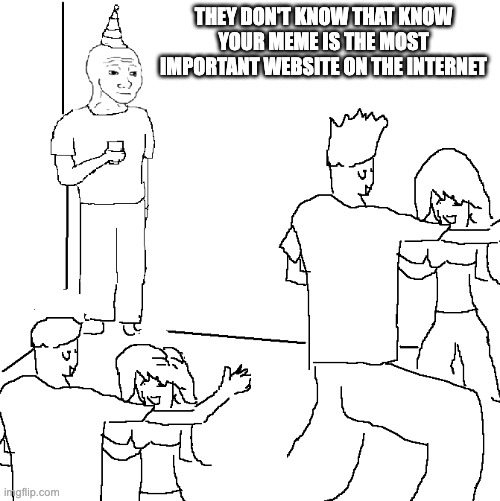



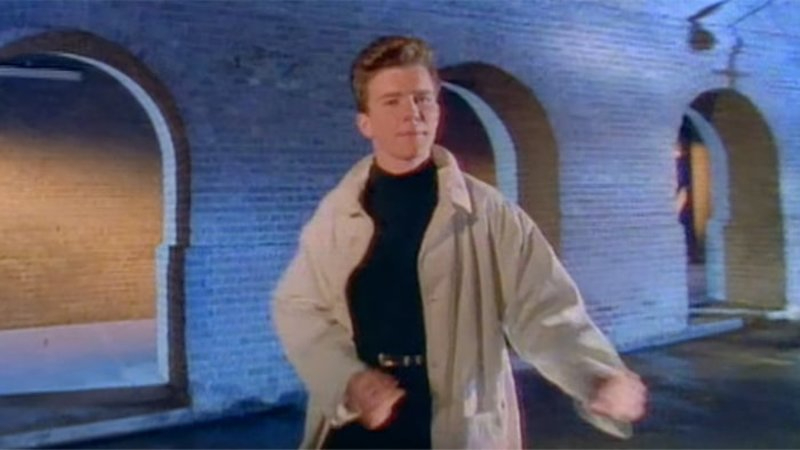
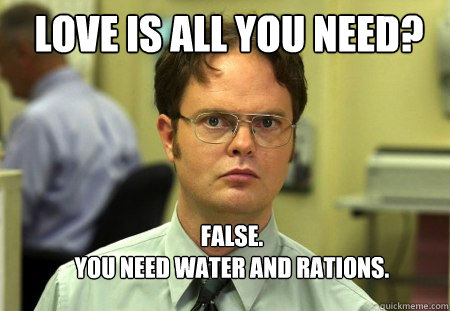
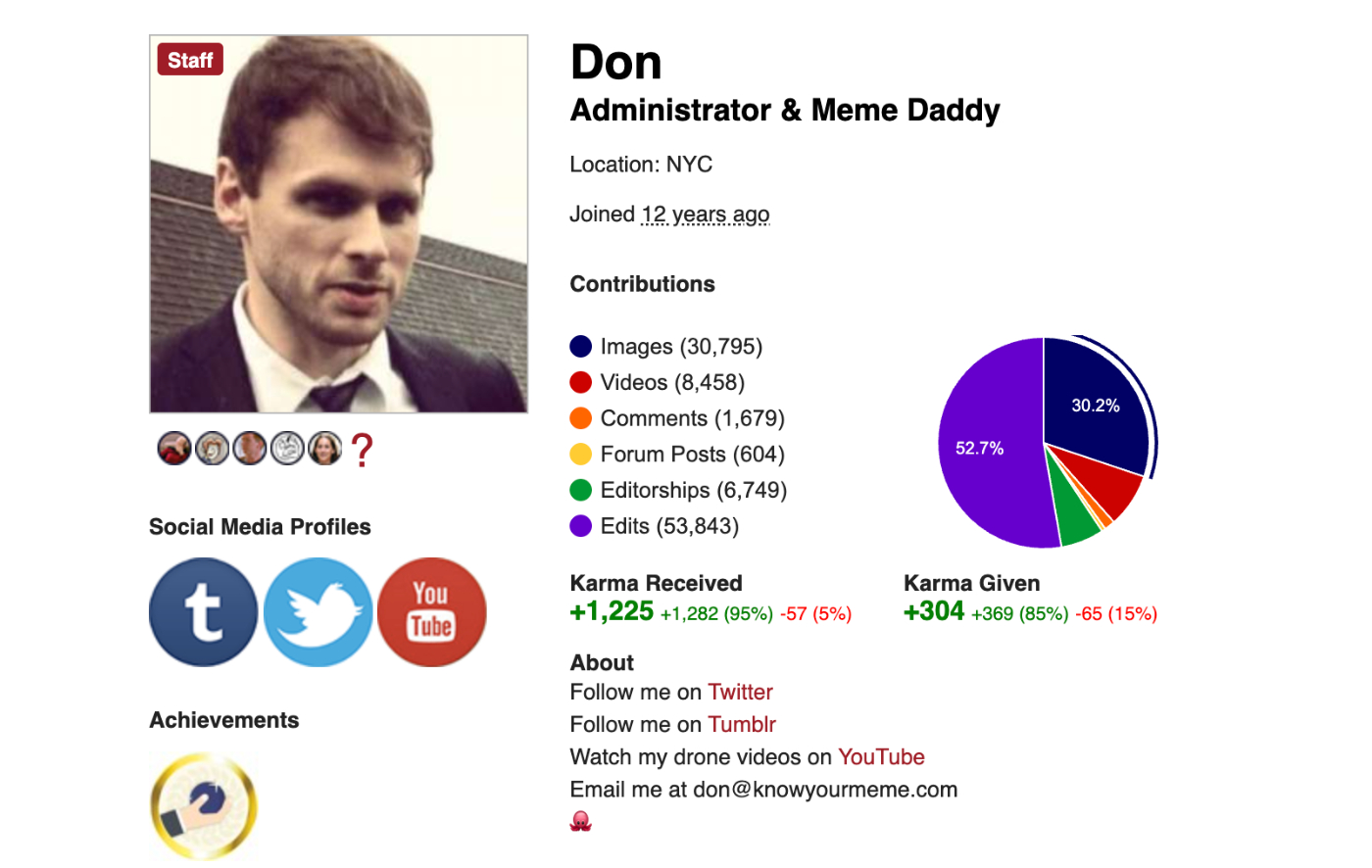
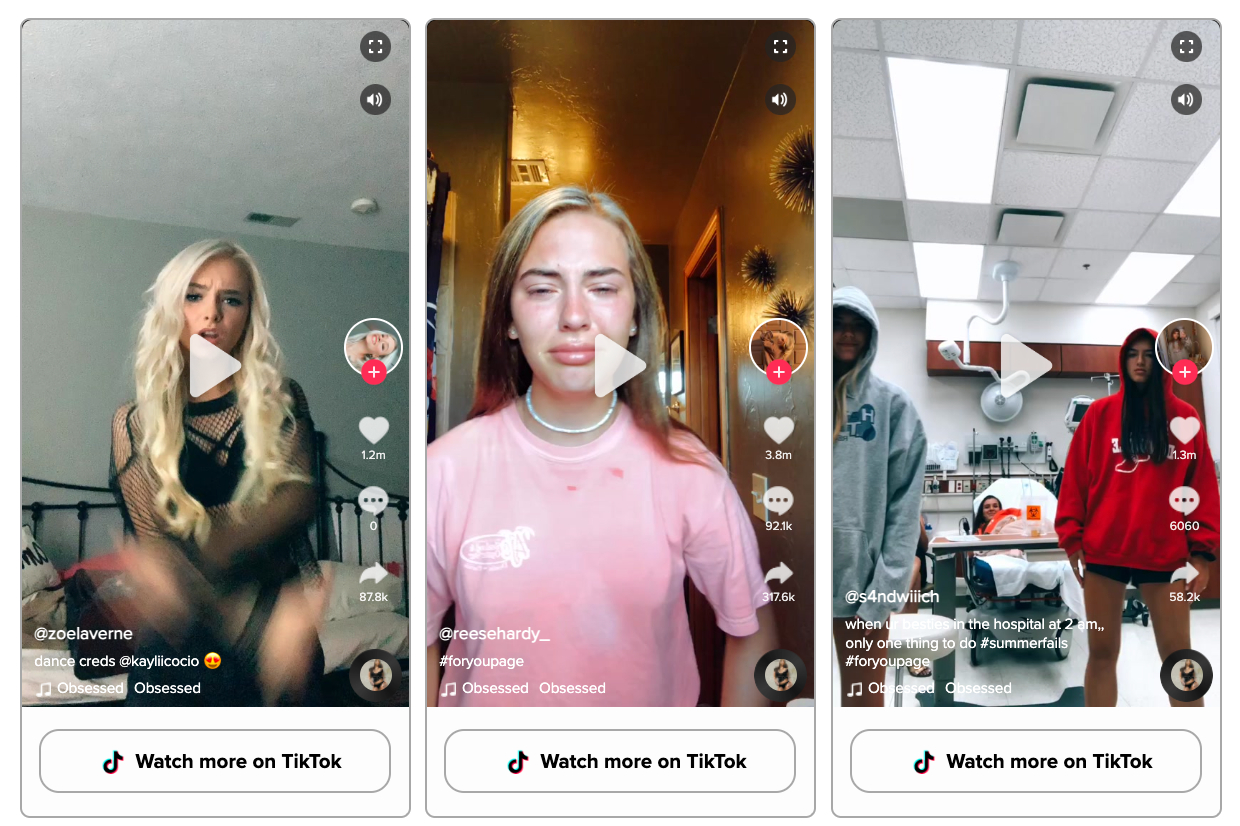

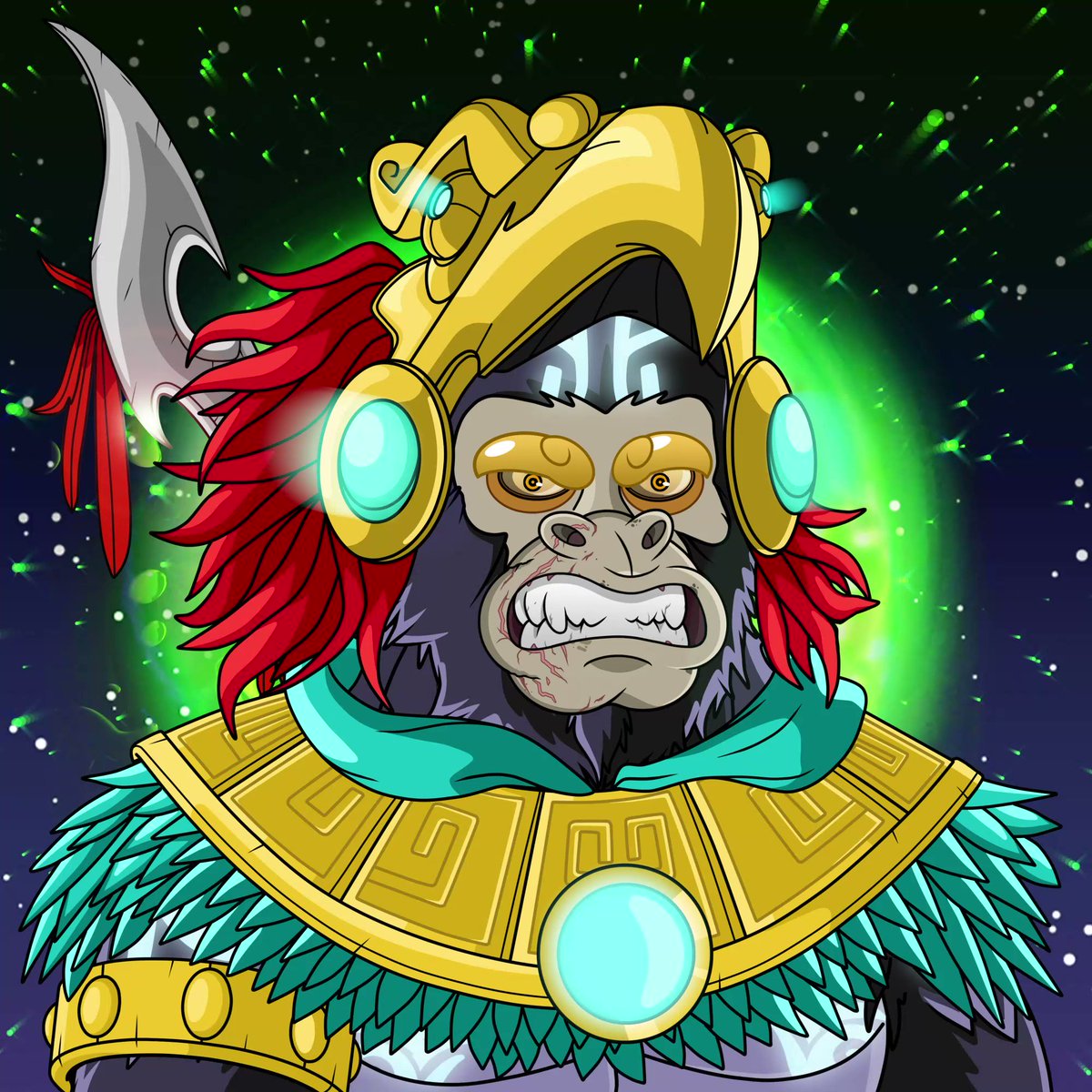








Comments
Don't have an account? Sign up!
FV